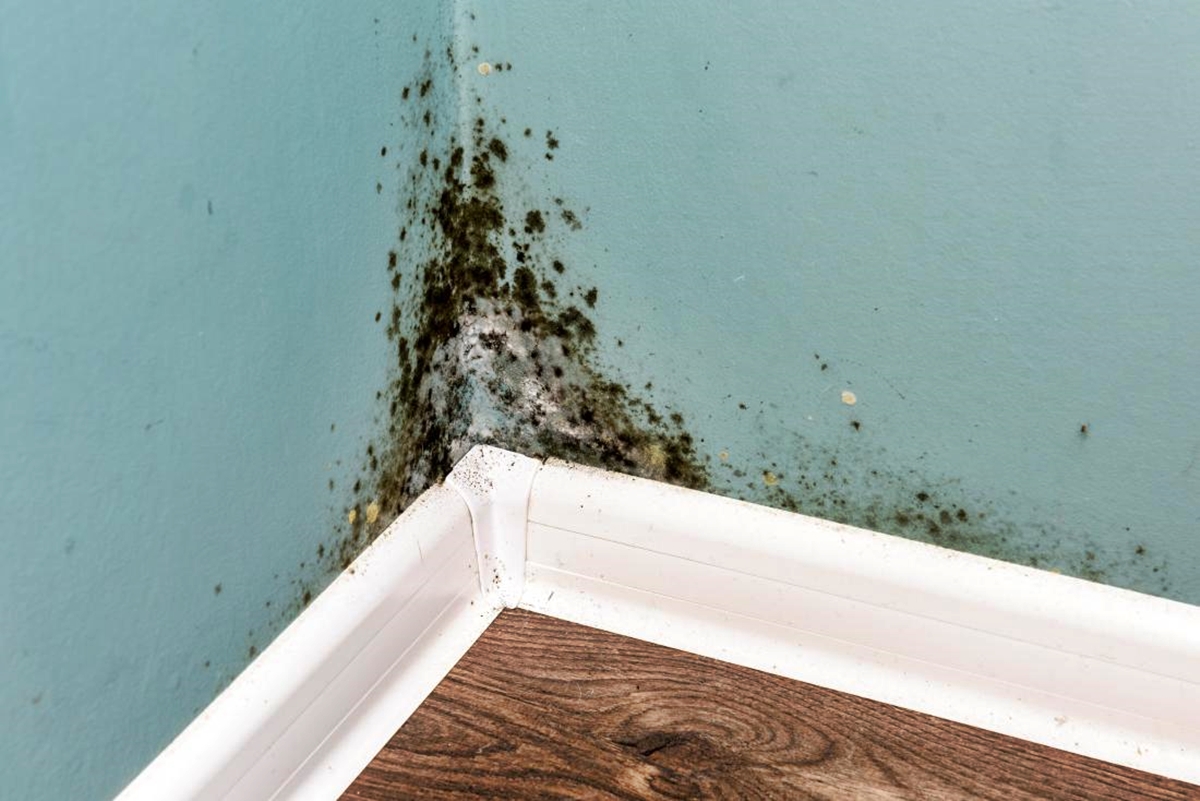

Featured
What Is Home Health Aide
Modified: January 2, 2024
Discover what a home health aide is and the important role they play in providing care and support to individuals with healthcare needs. Explore featured information on this essential profession.
Introduction
Welcome to the world of home health aides! In an era where healthcare services are increasingly being provided in a person’s own home, home health aides play a crucial role in ensuring the well-being and quality of life for individuals in need. If you have ever wondered what exactly a home health aide does, this article is here to provide you with all the answers.
A home health aide, commonly known as an HHA, is a trained healthcare professional who assists individuals with daily activities, healthcare monitoring, and emotional support in the comfort of their own homes. Home health aides are typically employed by home healthcare agencies or work independently, providing valuable assistance to people of all ages, from seniors and disabled individuals to those recovering from illnesses or injuries.
The primary objective of home health aides is to promote independence and improve the overall well-being of patients. They act as trusted companions, helping individuals maintain their dignity and allowing them to remain in the familiar surroundings of their homes. Home health aide services are often utilized by individuals who prefer to receive care at home rather than in a healthcare facility.
As a home health aide, you will encounter a diverse range of individuals with varying healthcare needs. Your role will be to provide personal care, such as assisting with bathing, dressing, grooming, and toileting. In addition, you may be responsible for managing medication schedules, monitoring vital signs, and reporting any changes in a patient’s condition to the relevant healthcare professionals.
While the job of a home health aide can be physically demanding, it is also rewarding. You will have the opportunity to make a positive impact on the lives of those you care for, enabling them to maintain their independence and live with dignity.
In the sections that follow, we will delve deeper into the roles and responsibilities of home health aides, the training and certification requirements, the necessary skills and qualifications, as well as the job outlook and potential challenges of this profession.
Definition of Home Health Aide
A home health aide (HHA) is a healthcare professional who provides essential assistance and support to individuals who require care in their own homes. These individuals may include seniors, disabled individuals, or those recovering from illnesses or injuries. The primary focus of a home health aide is to ensure the well-being and comfort of the patients they care for.
Home health aides are responsible for assisting with a wide range of daily activities, including personal care, medication management, meal preparation, light housekeeping, and companionship. They work under the supervision of healthcare professionals such as registered nurses or licensed practical nurses, who provide guidance and oversight.
As a home health aide, your duties may include helping patients with tasks such as bathing, dressing, grooming, and toileting. You may also be responsible for monitoring vital signs, administering medication, and assisting with physical therapy exercises as prescribed by healthcare professionals. Additionally, you may perform light housekeeping duties, such as laundry and meal preparation, to maintain a safe and comfortable environment for the patient.
Home health aides play a vital role in providing emotional support to patients and their families. They develop relationships with the individuals they care for, offering companionship and a listening ear to alleviate feelings of loneliness or anxiety. Additionally, they provide updates on the patient’s condition to healthcare professionals and communicate any concerns or changes that may require attention.
The services provided by home health aides can greatly benefit individuals who prefer to receive care in the comfort of their own homes. This option promotes independence and allows patients to maintain their familiarity with their surroundings. It can also lead to improved overall well-being and a higher quality of life for those in need of care.
Overall, a home health aide is a compassionate and dedicated healthcare professional who plays a crucial role in providing essential care and support to individuals in their homes. By assisting with daily activities, monitoring health conditions, and offering emotional support, home health aides strive to improve the overall well-being of their patients.
Roles and Responsibilities of a Home Health Aide
As a home health aide, you will have a wide range of responsibilities that are aimed at improving the quality of life and ensuring the well-being of the individuals under your care. Your daily tasks may include:
- Assisting with personal care: One of the primary responsibilities of a home health aide is to help individuals with personal care activities. This may involve assisting with bathing, dressing, grooming, and toileting. Maintaining the dignity and privacy of the patient is of utmost importance.
- Medication management: Home health aides often play a vital role in helping patients manage their medication. This includes reminding them to take their medications as prescribed, ensuring they are taken at the correct dosages and times, and reporting any concerns or changes to healthcare professionals.
- Monitoring health conditions: Home health aides are responsible for regularly monitoring and recording vital signs, such as blood pressure, temperature, and pulse rate. They may also track other health indicators, such as blood sugar levels or oxygen saturation, as directed by healthcare professionals.
- Assisting with mobility and exercise: Depending on the patient’s needs and abilities, home health aides may provide assistance with mobility and exercise. This can involve helping patients with ambulation, transfers, and performing prescribed physical therapy exercises.
- Providing companionship: As a home health aide, you will also play a vital role in providing emotional support and companionship to your patients. Building a trusting relationship and engaging in conversations and activities can help alleviate feelings of loneliness and improve the overall well-being of the individuals you care for.
- Managing household tasks: Home health aides may also be responsible for light housekeeping duties, such as laundry, meal preparation, and keeping the patient’s living space clean and organized. Maintaining a safe and comfortable environment is essential for the well-being of the patient.
It is important for home health aides to maintain open communication with healthcare professionals and report any significant changes or concerns regarding the patient’s condition. This collaboration ensures that appropriate care is provided and any necessary adjustments to the care plan are made in a timely manner.
Remember, as a home health aide, your role is not just about providing physical assistance. It is about showing empathy, compassion, and respect to the individuals you care for. Your presence and attentiveness can make a significant difference in their lives and contribute to their overall well-being.
Training and Certification Requirements
While the specific training and certification requirements for home health aides may vary depending on the state or country, there are certain standard qualifications that most employers seek. These requirements are in place to ensure that home health aides are adequately trained to provide safe and competent care. Here are some key aspects to consider:
1. Education and Training: Most home health aide training programs require a high school diploma or equivalent. These programs are typically offered by vocational schools, community colleges, or home healthcare agencies. The curriculum covers essential topics such as personal care, infection control, basic medical knowledge, and patient safety.
2. Clinical Skills Training: In addition to classroom instruction, home health aide training programs often include practical, hands-on training in simulated or real-world healthcare settings. This allows students to develop and refine their skills in personal care, medication administration, vital sign monitoring, and other tasks relevant to the role.
3. CPR and First Aid Certification: Many employers require home health aides to possess current certification in cardiopulmonary resuscitation (CPR) and first aid. These certifications ensure that aides can respond effectively to emergencies and provide immediate care in critical situations.
4. State-Specific Training Requirements: Some states have specific training requirements that home health aides must fulfill. This may include additional hours of training or specialized topics such as Alzheimer’s care, dementia management, or specialized pediatric care. It is important to familiarize yourself with the regulations of the state in which you intend to work.
5. Certification and Licensing: While not all states require certification or licensing for home health aides, obtaining these credentials can enhance your employability and demonstrate your commitment to professionalism. Organizations such as the National Association for Home Care & Hospice (NAHC) and the National Association for Home Care & Hospice (NAHC) offer voluntary certification programs that assess the knowledge and skills of home health aides.
6. Continuing Education: The healthcare field is constantly evolving, and as a home health aide, it is essential to stay up-to-date with the latest industry developments. Continuing education opportunities, such as workshops, seminars, and online courses, can help you expand your knowledge and enhance your skills, ensuring that you provide the best possible care to your patients.
It is crucial to check the specific requirements of your state or country to ensure that you comply with all necessary training and certification obligations. Additionally, staying informed about current regulations and advancements in the home healthcare industry can help you enhance your professional growth and provide exceptional care to those in need.
Skills and Qualifications
Being a successful home health aide requires a combination of essential skills and qualifications that enable you to provide quality care to patients in their homes. Here are some of the key skills and qualifications that are important in this role:
1. Compassion and Empathy: Home health aides must have a genuine concern and empathy for the well-being of their patients. This allows them to provide compassionate care and support, understanding the unique needs and emotions of each individual.
2. Strong Communication Skills: Effective communication is essential for understanding and addressing the needs of patients as well as collaborating with healthcare professionals. Home health aides must be able to communicate clearly and effectively, both verbally and in writing.
3. Problem-Solving Abilities: Home health aides often encounter challenging situations and unexpected issues. Having strong problem-solving skills enables them to think critically and find solutions to ensure the safety and well-being of the patients under their care.
4. Attention to Detail: Keeping track of medication schedules, monitoring vital signs, and following care plans require meticulous attention to detail. Home health aides must be diligent in their documentation and be able to notice any changes in the patient’s condition.
5. Time Management and Organizational Skills: Home health aides often juggle multiple tasks and responsibilities. Being able to prioritize tasks, manage time effectively, and stay organized is crucial for providing efficient and comprehensive care.
6. Physical Stamina: The role of a home health aide can be physically demanding, requiring the ability to lift and move patients, assist with transfers, and perform other physical tasks. Good physical stamina is essential to handle these demands with ease and without compromising patient safety.
7. Cultural Sensitivity: Home health aides work with individuals from diverse backgrounds and cultures. Having cultural sensitivity and understanding allows them to provide care that is respectful and aligned with the values and beliefs of the patients they serve.
8. Professionalism and Ethics: Home health aides must maintain a high level of professionalism and adhere to ethical standards in their practice. Respecting patient privacy, maintaining confidentiality, and demonstrating integrity are essential qualities in this role.
Qualifications for home health aides may vary depending on the state or country. These can include completing a recognized training program, obtaining certification, undergoing a background check, and meeting any specific licensing requirements. It is important to check the specific qualifications needed in your area to ensure compliance.
Developing and honing these skills, along with meeting the necessary qualifications, will help you excel as a home health aide and provide exceptional care to those who rely on your services.
Job Outlook and Demand for Home Health Aides
The demand for home health aides is on the rise, and the job outlook for this profession is highly favorable. This is driven by several factors that contribute to the increased need for home-based healthcare services:
1. Aging Population: The aging population is a significant factor contributing to the demand for home health aides. As the proportion of elderly individuals continues to increase, so does the need for support and care in their own homes.
2. Preference for Home Care: Many individuals prefer to receive care in the comfort of their own homes rather than in a healthcare facility. This preference is driven by the desire to maintain independence, familiarity with the environment, and personalized attention that home health aides can provide.
3. Cost-Effectiveness: Home-based care is often a more cost-effective option compared to hospital or long-term care facility stays. Making use of home health aides can help reduce healthcare costs while still ensuring quality care for patients.
4. Advances in Technology: The advancement of technology has made home healthcare more accessible and efficient. Remote monitoring devices, telehealth services, and other technological innovations enable healthcare professionals to provide support and guidance to home health aides and their patients in real time.
As a result of these factors, the United States Bureau of Labor Statistics (BLS) predicts that the employment of home health aides will grow much faster than the average for all occupations. The BLS projects a 34% growth in employment from 2019 to 2029, which is significantly higher than the average growth rate for other professions.
The demand for home health aides is not limited to the United States; it is a global trend. As the world population continues to age, there is an increasing need for home-based healthcare services in many countries. This presents opportunities for home health aides worldwide.
Furthermore, the COVID-19 pandemic has further highlighted the importance of home-based care. Many individuals have become more hesitant to enter healthcare facilities and seek care in their homes instead. This has led to an increased demand for home health aides who can provide the necessary support while minimizing exposure to the virus.
With the positive job outlook and increasing demand, the field of home health aides offers stability and opportunities for career growth. Whether you are just starting your career or considering a career switch, becoming a home health aide can provide you with a rewarding and in-demand profession.
Benefits and Challenges of Being a Home Health Aide
Being a home health aide can be a fulfilling and rewarding career choice with its own unique set of benefits and challenges. Let’s explore some of the advantages and considerations of working in this field:
Benefits:
- Fulfilling Work: Helping individuals maintain their independence and improve their quality of life can be incredibly fulfilling. As a home health aide, you have the opportunity to make a positive impact on the lives of those in need.
- Flexible Schedule: Home health aides often have the flexibility to choose the hours and shifts that work best for them. This flexibility can be especially beneficial for those seeking work-life balance or juggling other responsibilities.
- Building Meaningful Relationships: Working closely with patients in their homes allows for the development of personal and meaningful relationships. You have the opportunity to get to know your patients on a deeper level, offering companionship and emotional support.
- Personal and Professional Growth: Being a home health aide provides opportunities for personal and professional growth. You can acquire valuable skills and knowledge through training programs, continuing education, and hands-on experience.
- Job Stability: With the increasing demand for home healthcare services, job stability in this field is high. The need for home health aides is projected to continue growing, offering long-term career prospects.
Challenges:
- Physical Demands: The role of a home health aide can be physically demanding. Assisting with transfers, lifting, and performing household tasks requires strength and stamina.
- Emotional Stress: Witnessing the challenges and struggles of patients can take an emotional toll. It is important to prioritize self-care and seek support when needed to manage this aspect of the job.
- Transportation and Travel: Home health aides often need to travel from one patient’s home to another. This may require access to reliable transportation and the willingness to commute between locations.
- Workplace Hazards: Like any healthcare profession, there may be potential risks and exposure to infectious diseases. Following safety protocols and practicing infection control measures is essential to mitigate these risks.
- Varied Work Environments: Working in different clients’ homes means encountering different living conditions and environments. Adapting to different situations and maintaining professionalism in various settings is important.
Despite the challenges, many home health aides find the work to be incredibly fulfilling and worthwhile. Understanding both the benefits and challenges of being a home health aide can help you make an informed decision about pursuing a career in this field.
Conclusion
Being a home health aide is a fulfilling and rewarding career choice that provides essential care and support to individuals in the comfort of their own homes. The demand for home health aides is growing rapidly, driven by factors such as an aging population, preference for home care, cost-effectiveness, and advancements in technology. The job outlook for home health aides is highly favorable, with a projected increase in employment opportunities in the coming years.
Home health aides play a vital role in assisting with personal care, medication management, health monitoring, and providing emotional support to patients. They possess a variety of skills, including compassion, communication, problem-solving, and attention to detail. By meeting specific training and certification requirements, home health aides ensure they are well-equipped to provide safe and competent care.
While there are benefits to being a home health aide, such as fulfilling work, flexible schedules, and opportunities for personal and professional growth, there are also challenges to consider. Physical demands, emotional stress, varied work environments, and potential workplace hazards are among the factors that can make this career demanding at times.
In conclusion, a career as a home health aide offers an opportunity to make a positive impact on the lives of individuals in need while contributing to the growing field of home-based healthcare. It is a profession that requires dedication, empathy, and a commitment to providing compassionate care. Despite the challenges, many find the rewards of being a home health aide far outweigh the difficulties, making it a rewarding and fulfilling career choice.









